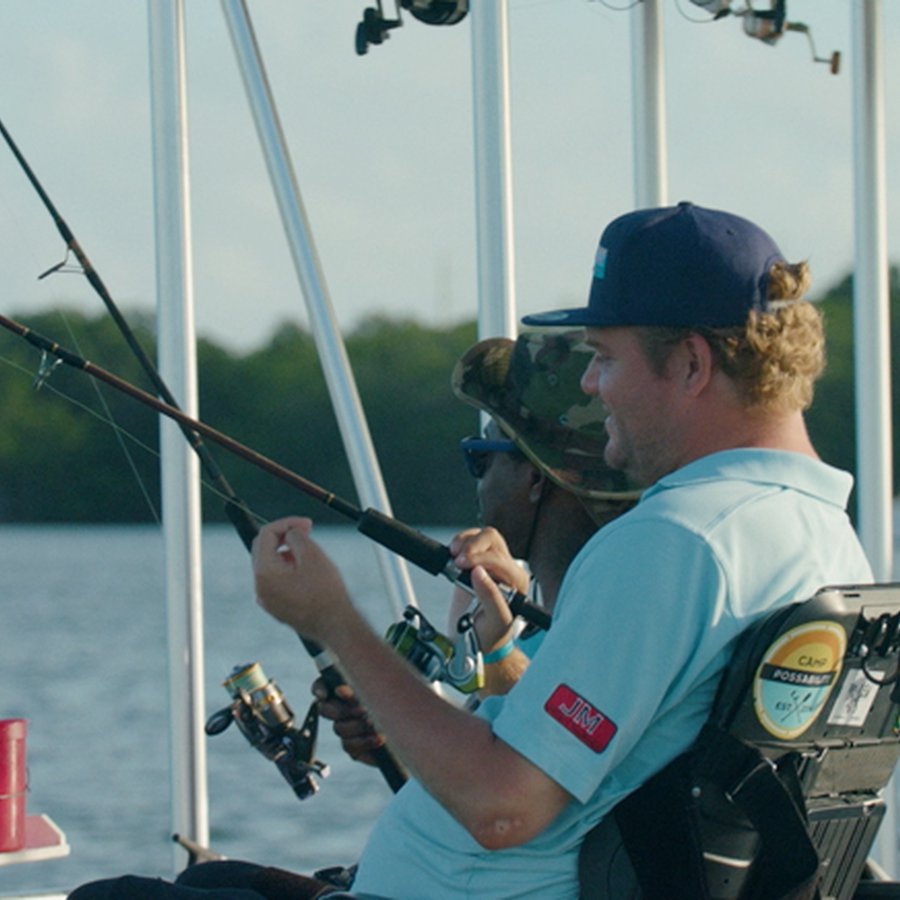Many of us have difficulty boarding a sport boat or center-console when it requires climbing over a high gunwale. For a person in a wheelchair, of course, that’s impossible.
“Getting into the boat is the hardest part with a traditional fiberglass boat. There is no easy way to enter,” said Esteban Siegert, vice president of sales and marketing for Crest Pontoon.
This is one area where the pontoon boat, with its easily accessible boarding gates, inherent stability, and flat, open deck, truly shines. If needed, a number of pontoon manufacturers, including the three we spoke with for this blog – Crest Pontoon, Premier Pontoons and Misty Harbor Boats – are willing to make modifications to their standard boat models to make boating even more accessible for customers with wheelchairs.
The width of a pontoon boat’s bow, stern and side gates can vary depending on the boat’s overall dimensions, but it is common to find pontoon gates measuring from 28 to 32 inches wide. Wheelchairs also vary greatly in width, but most range from 21 to 30 inches, which means they fit through most standard pontoon gates. However, some pontoon customers do have larger wheelchairs, and many manufacturers can accommodate them.
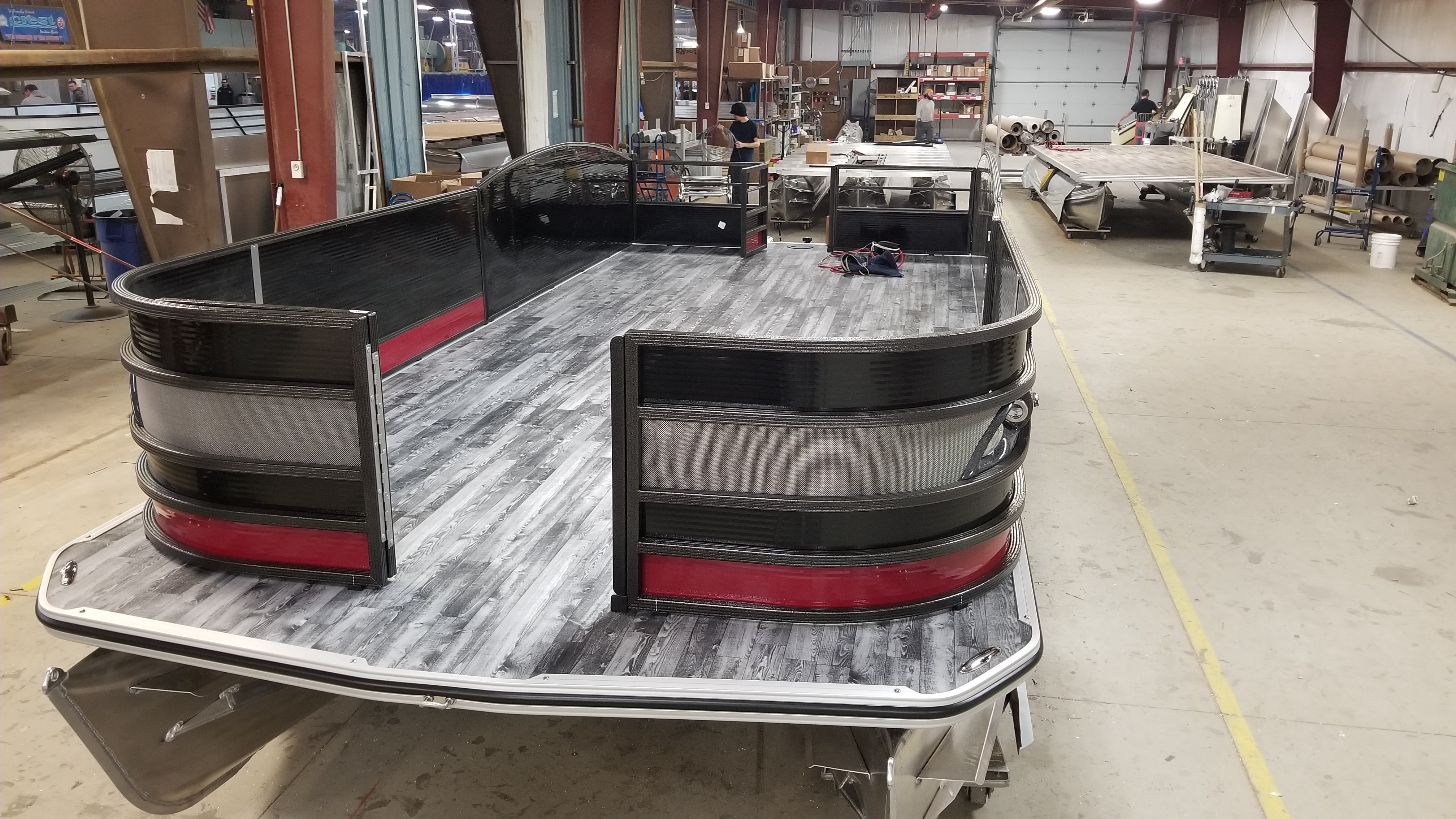 “We can make our side gates wider so they are wheelchair-accessible,” said Siegert of Crest. He cautioned, however, that modifications are easy to do with aluminum-frame pontoons but are not always possible on pontoons with fiberglass exterior styling.
“We can make our side gates wider so they are wheelchair-accessible,” said Siegert of Crest. He cautioned, however, that modifications are easy to do with aluminum-frame pontoons but are not always possible on pontoons with fiberglass exterior styling.
Premier Pontoons also will modify its boats’ boarding gate sizes to enhance accessibility.
“We have widened the gate to at least 36 inches per the request of a customer,” said Eric Harcourt, national sales manager at Premier. He added that owners can also request a wider rear platform between the outboard motor and the pontoon’s aft rail to better accommodate a wheelchair.
“Our whole team has a big heart for this,” added Andrew Stanfield, marketing director at Misty Harbor Boats, manufacturer of the Viaggio pontoon boat line.
Modifying pontoon boats to be more handicap-accessible for customers is part of the company culture at Misty Harbor, which is a longtime partner with LoveWay, a charity that provides therapeutic equestrian riding for children with disabilities.
“Seats can be removed, gates are widened to accommodate wheelchairs and many other needed accommodations are possible depending on the boat layout,” Stanfield said, adding that Misty Harbor goes out of its way to make these modifications without impacting the overall styling of the pontoon. “It’s kind of nice to know your boat will look and feel like any other boat.”
A variety of aftermarket ramps are available to help a person in a wheelchair roll safely on to a pontoon boat’s deck. They range from portable models to permanent, retractable ramps that can be bolted to the underside of the deck between the pontoons. Ramps also can help make boarding easier for people who do not use a wheelchair but have difficulty climbing boat ladders.
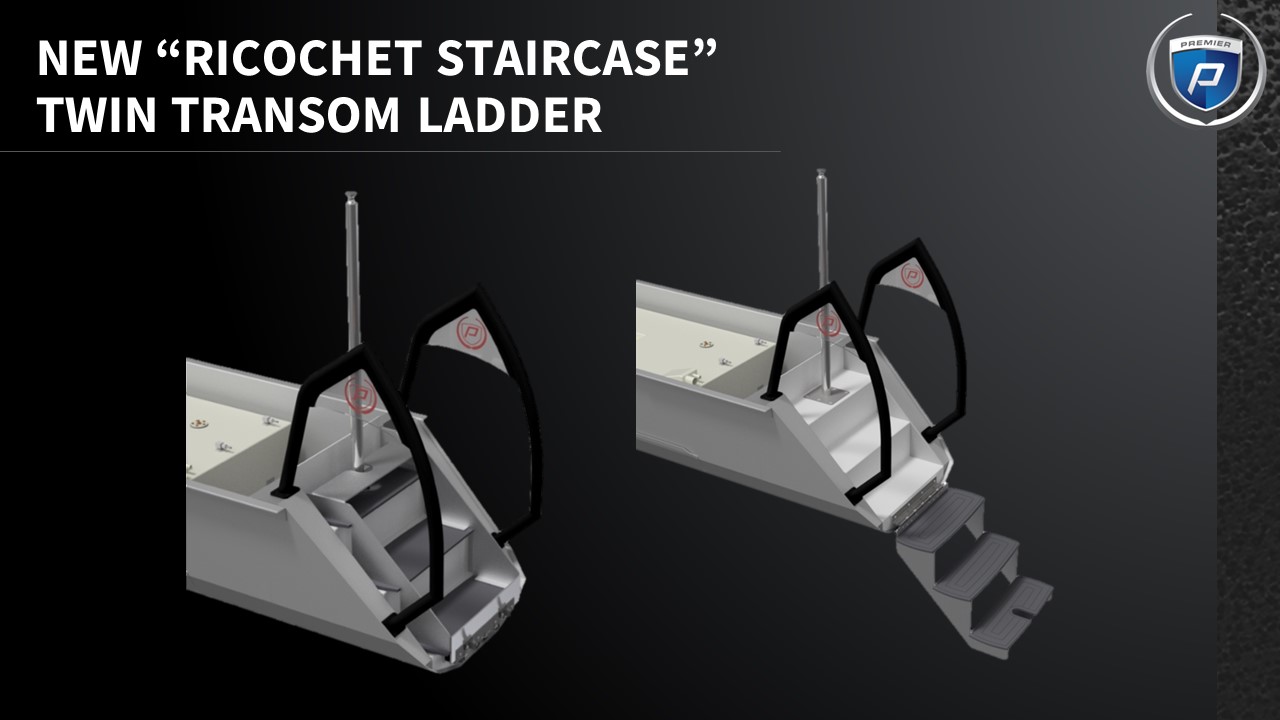 Premier Pontoons recently developed an innovative solution to the vertical boarding ladder called the Twin Transom Ricochet Staircase. It has a lower unit that retracts into the upper section when the boat is underway. When deployed, its wide steps provide firm footing to easily board the boat.
Premier Pontoons recently developed an innovative solution to the vertical boarding ladder called the Twin Transom Ricochet Staircase. It has a lower unit that retracts into the upper section when the boat is underway. When deployed, its wide steps provide firm footing to easily board the boat.
Another advantage of pontoon boats is the fact that most have single-level decks with no changes in elevation to stop wheelchairs or trip people who may be unsure on their feet. There usually is plenty of space to maneuver around sofas, chairs and other furniture.
“It’s very open. It’s like a living room,” said Siegert, who also noted that amenities such as tables, entertainment system controls, coolers, etc., are usually right at hand and don’t require stepping down to a cabin or cockpit to retrieve anything.
If desired, however, pontoon boat manufacturers can modify their models to create even more space on deck for passengers in wheelchairs. The furniture is an expensive part of most pontoons. According to Harcourt, in some cases, by removing furniture, the cost of the boat could decrease.
Another option is to use smaller furniture.
“We can make our floor space more open so you can navigate,” Siegert said. “In a 24-foot boat, we can use the furniture we would normally use in a 20-foot boat.”
“Seats can be changed to make space for where a wheelchair will sit,” added Stanfield. “Owners can roll their chair on and simply lock the brake, or eyelets can be installed into the floor so the wheelchair can be locked down.”
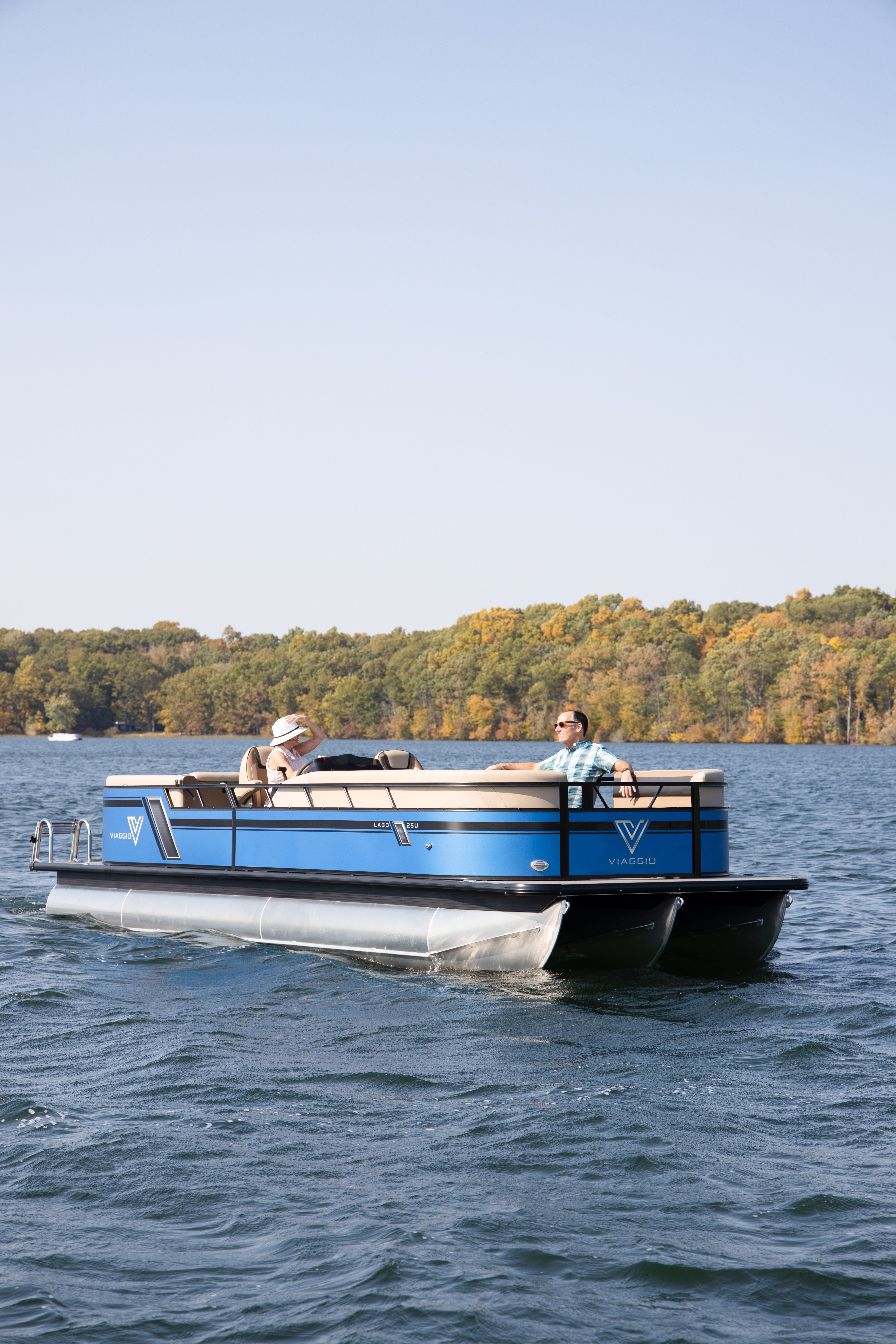 Customers in wheelchairs occasionally will challenge a semi-custom pontoon builder’s ingenuity. For example, a unique feature of Premier Pontoons is a helm station that is raised slightly for better visibility.
Customers in wheelchairs occasionally will challenge a semi-custom pontoon builder’s ingenuity. For example, a unique feature of Premier Pontoons is a helm station that is raised slightly for better visibility.
“For this one customer, we created a ramp so his wheelchair could go up on to the [helm] platform,” Harcourt said. “We were going to remove the helm seat so he could put the wheelchair there, but he decided to transfer over to the helm seat instead. Now, we’re working on making a bracket to clip the wheelchair behind the helm chair, so he can drive the boat single-handed.”
According to Stanfield, when a customer requests modification to a standard Viaggio pontoon model in order to make it handicap-accessible, Misty Harbor frequently drops the charges for making those changes.
“Boating is booming right now, and there are a lot of people in need of special accommodations who would love to be involved, if they only knew there was a way to get a boat without massive modification expenses,” he explained. “Our team sincerely does want to help everyone to have an awesome experience on the water, and we’ll bend over backward to try and make that happen.”
Siegert summed it up: “Pontoon boating is a great way to be out there with the family. We want everybody to have the chance to be out there.”




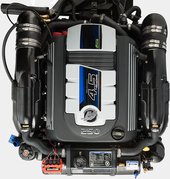
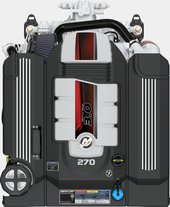


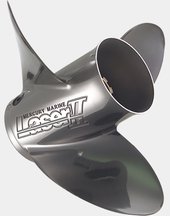
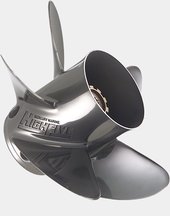
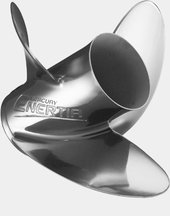


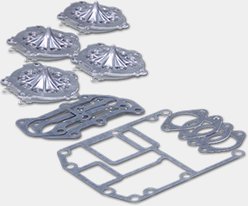
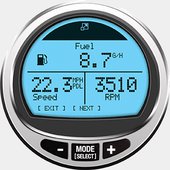
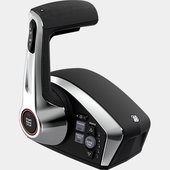
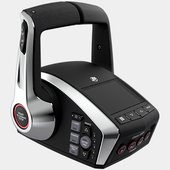
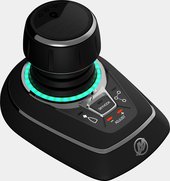
 “We can make our side gates wider so they are wheelchair-accessible,” said Siegert of Crest. He cautioned, however, that modifications are easy to do with aluminum-frame pontoons but are not always possible on pontoons with fiberglass exterior styling.
“We can make our side gates wider so they are wheelchair-accessible,” said Siegert of Crest. He cautioned, however, that modifications are easy to do with aluminum-frame pontoons but are not always possible on pontoons with fiberglass exterior styling. Premier Pontoons recently developed an innovative solution to the vertical boarding ladder called the Twin Transom Ricochet Staircase. It has a lower unit that retracts into the upper section when the boat is underway. When deployed, its wide steps provide firm footing to easily board the boat.
Premier Pontoons recently developed an innovative solution to the vertical boarding ladder called the Twin Transom Ricochet Staircase. It has a lower unit that retracts into the upper section when the boat is underway. When deployed, its wide steps provide firm footing to easily board the boat. Customers in wheelchairs occasionally will challenge a semi-custom pontoon builder’s ingenuity. For example, a unique feature of Premier Pontoons is a helm station that is raised slightly for better visibility.
Customers in wheelchairs occasionally will challenge a semi-custom pontoon builder’s ingenuity. For example, a unique feature of Premier Pontoons is a helm station that is raised slightly for better visibility.

